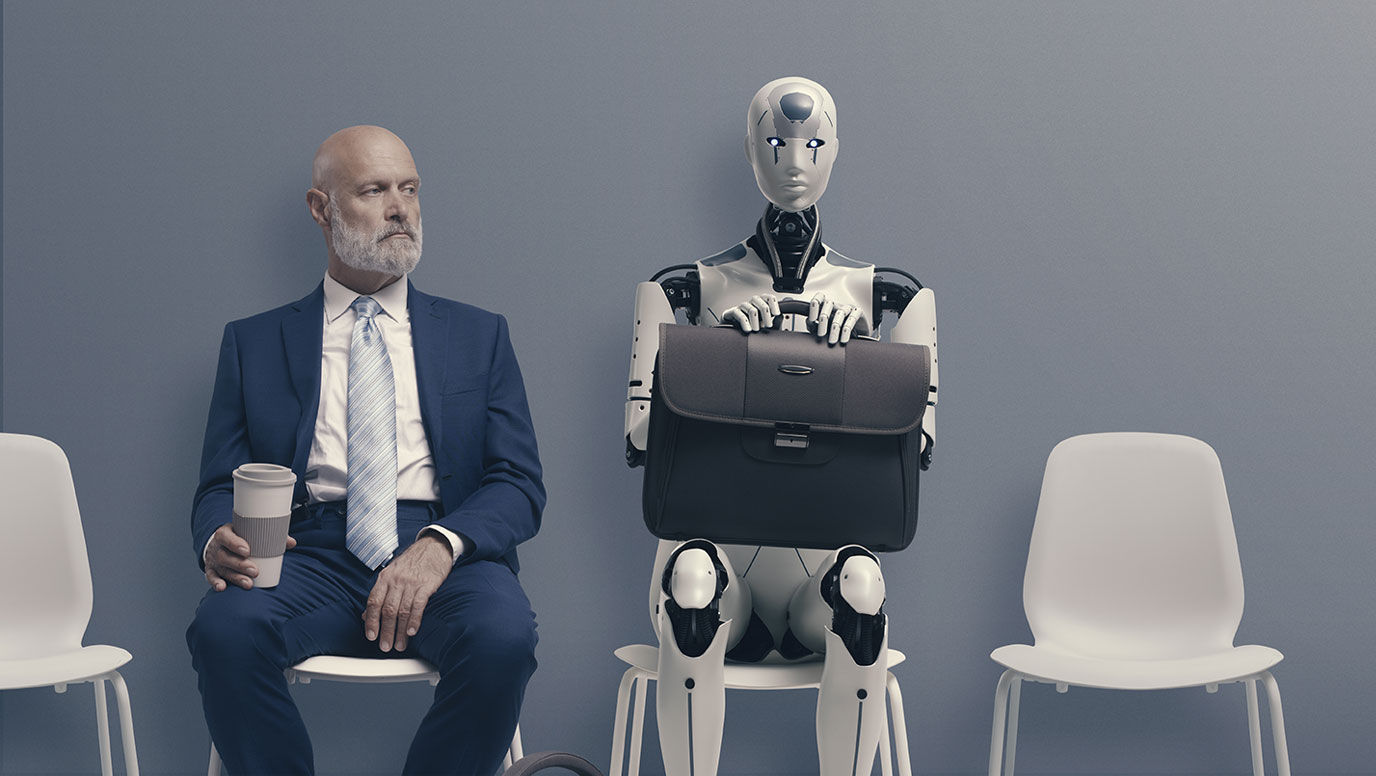The human vs the AI employee

While the notion of certain job functions being executed without human involvement might seem implausible, the advancement of AI prompts businesses to consider the necessity of retaining humans in specific roles, whilst ensuring they are keeping up to speed with how to utilise AI to their advantage.
Limitations and pitfalls of AI
Issues like content reliability, dependence on precise instructions, susceptibility to manipulation and biases (as illustrated by Microsoft’s Tay chatbot which, soon after its launch, started to adopt racist and misogynistic ‘opinions’ learning from the interactions it had with those that engaged with it in a more sinister way), and data protection concerns due to sensitive information processing are all at the forefront of AI use.
Despite these concerns, AI shows promising capabilities in tasks like providing online advice, language translation, data processing, research, pattern recognition and aiding in the recruitment process.
Can AI replace people?
Tech billionaire Elon Musk opined at the recent AI summit that there will be a point where no job is necessary as AI could accomplish everything. Of course, not everyone agrees with these apocalyptic predictions and certainly, roles requiring qualities like empathy, sensitivity, creativity and interpersonal skills seem less susceptible to replacement.
It is clear that those adept at integrating AI to complement human roles stand to gain advantages, realising cost efficiencies and increased productivity, especially in under-resourced sectors, despite the likelihood of significant changes ahead for the traditional use of people and their duties.
Love it or loathe it, AI is becoming a disruptor and an opportunity that is here to stay.
Legislative protection
The threat to employees and jobs posed by AI has seen a growing demand for legislation. Current employment law, while not explicitly designed to protect workers against the intellect of generative AI, offers limited safeguards.
For example, it could be arguable that an employee replaced by generative AI may be able to assert unfair dismissal. If generative AI selects candidates for interview but, on account of its inherent biases, discriminates in this selection process, it is likely that the Equality Act 2010 could afford some legal recourse.
However, this is new ground and currently untested and whilst employment judges are practiced in pushing the boundaries of the existing law, there will be a need for the Government to legislate in the long term.
The TUC has criticised the UK for falling short in preparing to protect workers from AI since some European countries are taking more interventionist approaches.
A government White Paper in March 2023: AI regulation: a pro-innovation approach – GOV.UK (www.gov.uk) set out proposals for using existing regulations and regulators (including the ICO and ECHR) with a view to providing protection without stifling progress.
This proposal was widely criticised and various bodies have set out counter proposals which advocate for more regulation – these are summarised in a research briefing recently published by the House of Commons: Artificial intelligence and employment law – House of Commons Library (parliament.uk).
Following the AI Safety Summit, which underlined the need for global action to ensure the safe development of ‘frontier AI’, specific AI legislation proposals remained notably absent from The King’s Speech.
The future for legislation in this area may become clearer as this becomes hotly debated and a prominent feature of political party campaigns in the run up to the General Election.
Our concluding thoughts on this: with growing complexities, future legal intervention seems certain to keep the human in employment, albeit the law will have to have the agility to be adjust as the further advancements of AI unfold.
In the meantime, until the law catches up, employers would be well advised to develop policies, provide internal guidance and educate staff on the appropriate use of generative AI when implementing and permitting it’s use in the workplace.
• For more, email Charlotte-sloan@birketts.co.uk or call 01732 904 804.


